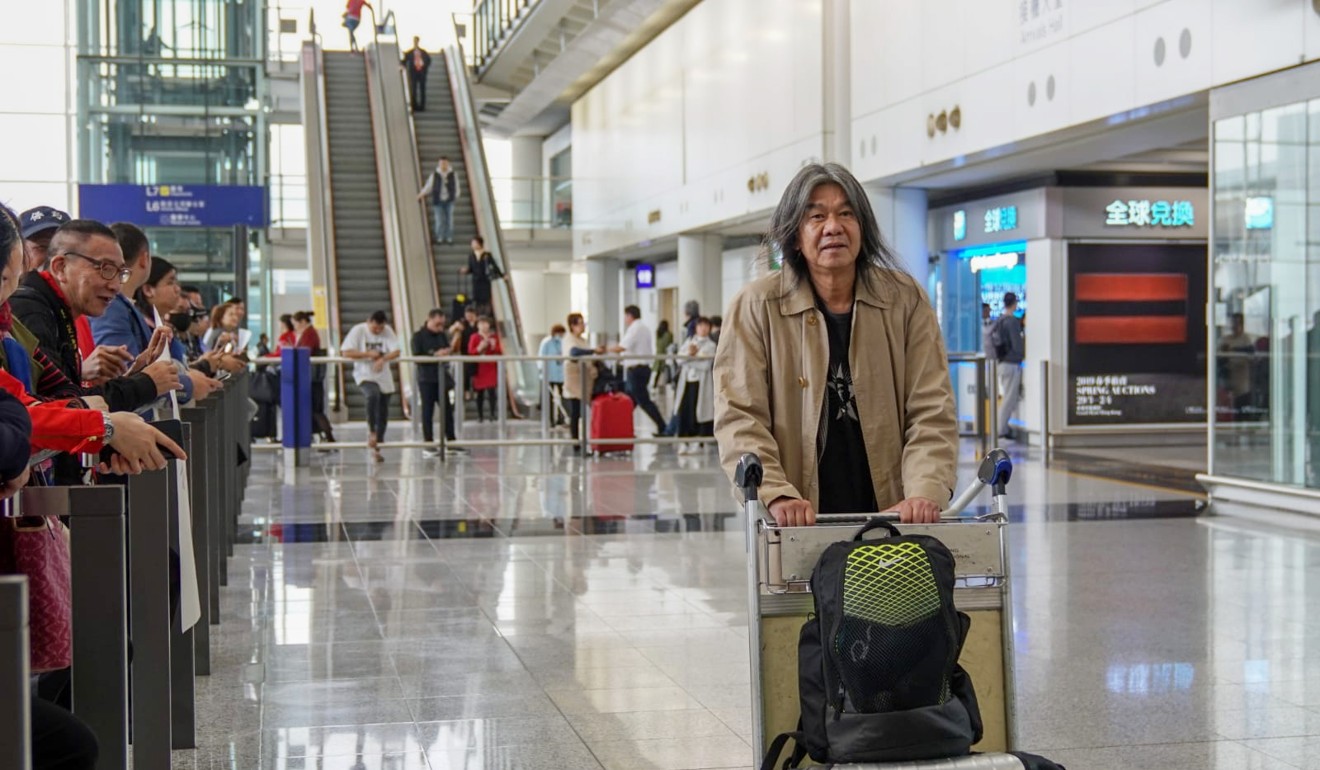
‘Long Hair’ Leung Kwok-hung denied entry to Japan to support Hong Kong activists on trial over Yasukuni Shrine protest
- Alex Kwok and Yim Man-wa face trial on Tuesday for trespassing at controversial Tokyo war shrine
- Leung calls it ‘reasonable’ for activists to go to Japan to demand apology for wartime deaths of Chinese civilians

A former pro-democracy lawmaker known for his trademark long hair was denied entry to Japan on Sunday, after he arrived to support two Hong Kong activists set to stand trial over a protest at a Japanese war shrine.
“Long Hair” Leung Kwok-hung’s political party, the League of Social Democrats, confirmed on Monday the former legislator was stopped from entering the country at Tokyo’s Haneda Airport on Sunday night and boarded a flight back to Hong Kong at 6.40am on Monday.
Leung, who was met at the airport by members of his party, called the Japanese government “shameless” for blocking his entry to attend the trial scheduled for Tuesday.
The activists, Alex Kwok Siu-kit and Yim Man-wa, of the Action Committee for Defending the Diaoyu Islands, were arrested in December for trespassing at Tokyo’s Yasukuni Shrine and burning a symbolic ancestral tablet of Hideki Tojo, the country’s wartime prime minister.

The Yasukuni Shrine is dedicated to 2.5 million Japanese citizens killed in conflicts, including 14 class A war criminals. The controversial site has long been at the centre of the country’s frayed relationship with its Asian neighbours.
Kwok and Yim said they were calling on the Japanese government to apologise for the Nanking massacre, which took place between December 1937 and January 1938. The city is now known as Nanjing.
Although the death toll for the massacre has not been conclusively established, China’s official estimate is more than 300,000 dead based on the evaluation of the Nanjing War Crimes Tribunal in 1947. Some Japanese estimates put the toll as low as 30,000.
“It is wrong for people to suggest Kwok and Yim’s protest was meaningless. It was reasonable for them to go to Japan to seek justice for the 30 million people who died in the Japanese invasion of China,” Leung said, in a reference to the Sino-Japanese War which took place from 1937 to 1945.
Historians believe Chinese casualties in the war ranged from 20 million to 30 million, with the majority being civilian deaths.
“As long as Japan does not apologise or make compensation for the atrocities during the invasion, condemnations against Japanese war criminals will never stop,” Leung said.
Kwok and Yim, who have been detained in Tokyo since their arrest, pleaded not guilty at the first hearing of their trial on March 7 at Tokyo District Court. Hong Kong media reported that retired Hong Kong cardinal Joseph Zen Ze-kiun, 87, attended the first hearing in support of the activists.
Local media also reported more than 100 Japanese activists attended the trial, chanting slogans and calling for the court to impose heavy sentences on the Hong Kong activists.
Kwok and Yim’s lawyers said the pair’s prosecution underlined the government of Prime Minister Shinzo Abe’s “determination to suppress foreigners’ criticism of Japan over war responsibility and historical issues”.